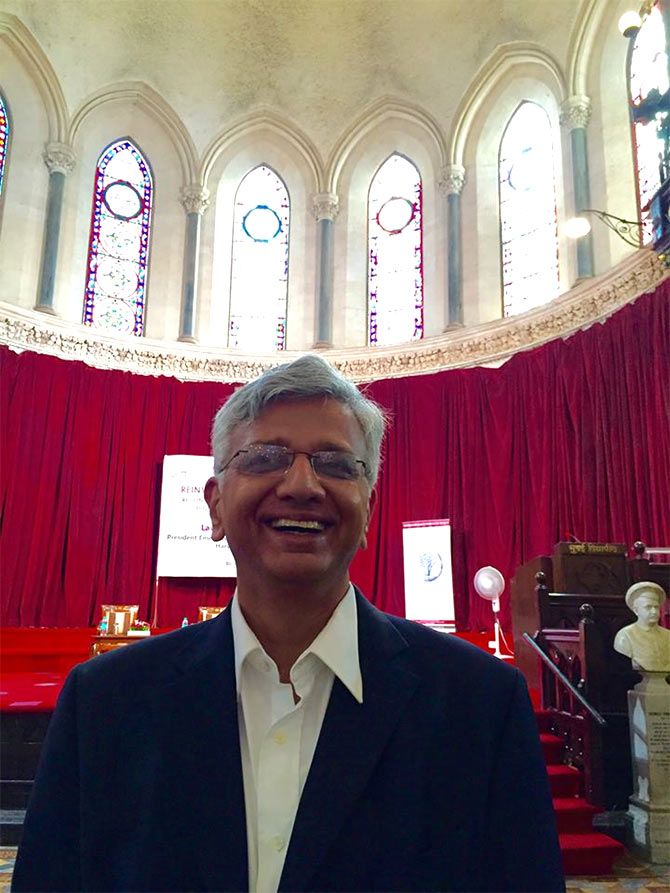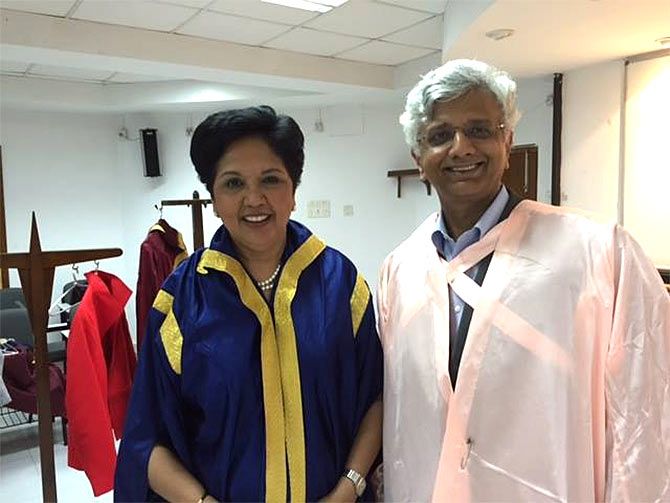'Cynics don't make it big in advertising.'
'Often, the medium calls for a rock-like commitment to puny, easily digestible ideas.''Here's a text that understands this facet of advertising and one that keeps its tone breezy and reporter-like; that's set across a wide canvas but one that never overstates its own importance,' says Sreehari Nair.

It was sunny outside. And resting on a velvet chair in the conference hall of a hotel in Mumbai, ad guru Neil French said to a friend of mine, 'Relax son, it's just advertising.'
My friend wasn't startled as much as disappointed. For here he was, salivating and nervous at the opportunity to present his 'portfolio' to the greatest name in the world of advertising, and French's almost Buddhist response ended up completely undercutting his enthusiasm.
"I would have been okay with even a 'Rascal, your work is terrible,' but this stings somewhere deeper," my friend later admitted.
Relax son, it's just advertising.
What made French say that? Was he bored? Was he trying to be cute?
Cheekiness has always been an enduring feature of Neil French's best copies. Was that cheekiness now spilling over ad libitum into the way he talked in real life?
Now, a few years down the line and having been some sort of an advertising professional myself, I think Neil French's response that afternoon was anything but spontaneous. It was, on the contrary, the response of a man who had arrived at the true essence of advertising.
And the essence lay in resisting the temptation to complicate advertising; to turn advertising into an art. Advertising is at best a science, but it is also a very surfacey, easily communicative science. An innocent science, maybe.
If you have been to an advertising presentation anytime, you would know how each slide in the presentation is expected to neatly mesh into the next. The whole idea is to put things into rational perspective; make it flow like a well-stitched narrative. You are selling yourself in the pursuit of your idea.
Your piece of advertising should mean the same thing to each individual who receives its message. If there is an ambiguity about your advertising idea, it means your idea isn't fully-formed yet. We are clearly not looking at the stuff of Tolstoy, here.
It seems like Ambi Parameswaran, whose book Nawabs, Nudes, Noodles -- India Through 50 Years Of Advertising arrived in book stores recently, also understands the innocent nature of the science of advertising.
Unlike R Balki, (whose name also appears on the cover page, giving the book a thumbs-up) who had said, with sagely wisdom in his movie Ki & Ka that 'society changes when advertising does',' Parameswaran approaches the subject in a matter-of-factly fashion, not confusing his role of a chronicler with that of a philosopher.
For a child of the Nineties like me, the book essentially worked like a sentimental piece, since I felt as though Ambi Parameswaran was, hand-holding me back to the time when I thought of TV ads as more interesting than the TV shows my parents watched, freezing that moment and taking me through the background tensions that spawned the happy faces and the catchy jingles.

Parameswaran squeezes in interesting sociological studies, brings up facts that are Lynchian in their absurdity (did you know there was a time when condoms could be advertised anytime of the day, but sanitary napkins only after 10 pm?) and generously cites instances when his own hypotheses about consumer behaviour were 'correctly destroyed' by a senior.
Parameswaran also inverts R Balki's theory about advertising 'showing the way' and suggests that advertising at best 'reflects the society's evolving patterns.' A bit about Thums Up which, after the lifting of the Emergency, had re-launched its brand with the tag-line 'Happy days are here again!' connoted, to me, a daredevilry that may even be unthinkable in today's times.
While it pays considerable attention to discovering links between advertising's changing eccentrics and broader consumer behaviour patterns, the book also tries to discover subtle bridges.
Post liberalisation, Indians warmed up to sensuality and advertising found a new location in which to place its products: Tthe consumer's unconscious.
When Madhu Sapre and Milind Soman appeared nude for a Tuffs shoes ad, with their arms and legs locked, and a python twisting around their bodies, there was a fusion that many missed: It was the Aashiqui generation, now erasing inhibitions and the inches between them, all the while posturing to the new beat of MTV.
If the ad and the product were aiming for longm standing relevance, it came, but in the form of a 15-year-old legal battle.
As he cuts between decades, Ambi Parameswaran constantly points us to how Indian advertising was always, in every decade about 'Doing The Right Thing.'
Of course, the meaning of 'The Right Thing' changed depending on whether you were talking about developing a social consciousness or respecting your parents or simply making yourself feel good.
The right thing changed, depending on whether it was a Brand of Tea you were selling or Retirement Policy or Sweetened Cola. It's left up to you, the reader, to decide if this approach of advertising is 'adventurous' or merely 'pussyfooting around political correctness.'
Here we come to the point of whether this is a path-breaking book.
I don't think so.
On a very basic level, this is not a book of ideas but moments relived (the writer is a brand strategist with over 35 years of experience in advertising). This is a book, staunch in its determination to paint India's advertising industry in nice, ribbon-decorated strokes.
The inner machinations and the interior pressures that the medium works up -- and which, equally, inspires and burns out advertising professionals -- are totally overlooked here.
Ambi Parameswaran's language is uncomplicated and almost completely jargon free (a rarity in the world of advertising). Which means that he is not interested in talking to the connoisseurs of advertising, as much as to the casual onlookers.
It's, however, the simple language that also tends to making certain arguments over-simplistic, leading to wincers such as: 'There have been critics like Mouthshut.com who says that the ad is gender-insensitive.' As if to propose that a review on a Web site is the actual Web site talking.
Cynics don't make it big in advertising. Often, the medium calls for a rock-like commitment to puny, easily digestible ideas. Here's a text that understands this facet of advertising and one that keeps its tone breezy and reporter-like; that's set across a wide canvas but one that never overstates its own importance.
The old Neil French line has an unlikely successor in a 265-page book. The light-footedness of Nawabs, Nudes, Noodles is perhaps its real charm.
Photographs: Kind courtesy Ambi Parameswaran/Facebook











 © 2025
© 2025